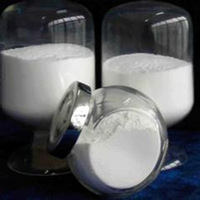描述
Product Description: Sodium Acetate
Product Alias: Sodium Ethanoate, Acetic Acid Sodium Salt
Appearance: Sodium acetate is a white crystalline powder or granular substance. It is odorless and has a slightly salty taste.
Character: Sodium acetate is highly soluble in water and forms a clear, colorless solution. It is hygroscopic, meaning it can absorb moisture from the air. Sodium acetate is stable under normal conditions and does not readily decompose.
Category: Sodium acetate falls under the category of organic salts. It is derived from the reaction between acetic acid and sodium hydroxide.
Chemical Formula: CH3COONa
Molecular Formula: C2H3NaO2
Product Description:
Sodium acetate, also known as sodium ethanoate or acetic acid sodium salt, is a versatile compound with various applications in the pharmaceutical industry. It is widely used as a buffering agent, pH adjuster, and excipient in the formulation of pharmaceutical products.
As a buffering agent, sodium acetate helps maintain the pH stability of pharmaceutical formulations. It acts as a weak acid or base, depending on the pH of the surrounding environment, and helps prevent drastic changes in pH that could affect the stability and efficacy of drugs. Sodium acetate is particularly useful in parenteral formulations, where it helps maintain the desired pH range for injectable medications.
In addition to its buffering properties, sodium acetate also finds application as a pH adjuster. It can be used to modify the acidity or alkalinity of solutions, ensuring optimal conditions for drug stability and activity. By adjusting the pH, sodium acetate can enhance the solubility and bioavailability of certain drugs, thereby improving their therapeutic effectiveness.
Sodium acetate is also employed as an excipient in pharmaceutical formulations. Excipients are inactive substances added to medications to aid in their manufacturing, stability, and administration. Sodium acetate can serve as a bulking agent, diluent, or filler in tablets, capsules, and powders. Its excellent solubility in water makes it suitable for use in liquid formulations, such as oral solutions and suspensions.
Furthermore, sodium acetate has been investigated for its potential antimicrobial properties. Studies have shown that it exhibits inhibitory effects against certain bacteria and fungi, making it a promising candidate for the development of antimicrobial formulations.
The pharmaceutical industry adheres to strict quality standards, and sodium acetate is no exception. It is produced using high-quality raw materials and undergoes rigorous testing to ensure purity, potency, and compliance with regulatory requirements.
In conclusion, sodium acetate is a valuable compound in the pharmaceutical industry, offering buffering, pH adjustment, and excipient functionalities. Its versatility and compatibility with various drug formulations make it an essential ingredient in the development of safe and effective pharmaceutical products.
